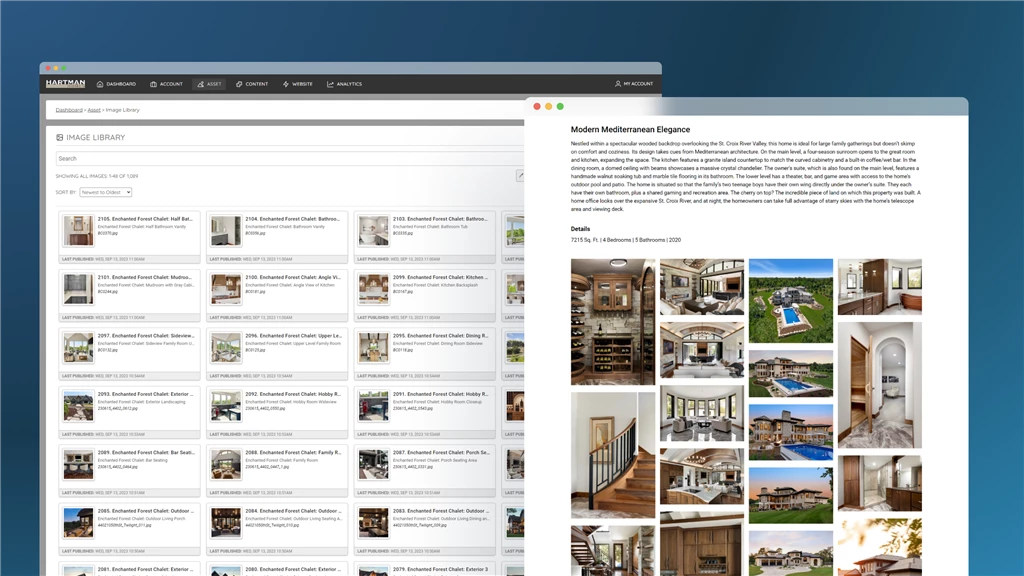What Is an Omnichannel Approach?
An omnichannel approach integrates every digital and physical touchpoint into one smooth, unified system. Whether your customers engage via your website, mobile app, social media, email, or in-person, an omnichannel strategy ensures they experience a consistent message and service throughout their journey.
- Consistency is Key: Instead of scattered channels that operate independently, all customer interactions are connected, providing clarity and familiarity at every step.
Why a Unified Tech Stack Is Key to Growth
Consolidating your tech stack into one platform like KNVEY DXP offers significant benefits for your business. Here’s why adopting a unified approach can be a game-changer:
1. Enhanced Efficiency and Consistency
- Streamlined Operations: Managing all your digital assets from one central platform eliminates redundant processes and ensures every channel reflects the same up-to-date information.
- Unified Branding: Consistent messaging across channels builds trust and reinforces your brand identity, no matter where your customers interact with you.
2. Improved Customer Engagement
- Seamless Interactions: With one integrated system, customer data flows freely, enabling faster response times and more personalized interactions.
- Holistic Experience: Customers enjoy a smooth experience from discovery to purchase, leading to higher satisfaction and loyalty.
3. Centralized Data for Better Decision Making
- Complete Insights: Consolidated data from various touchpoints offers a 360-degree view of customer behavior, helping you fine-tune your strategies.
- Informed Strategies: With unified analytics, you can quickly identify what’s working and adjust campaigns in real time.
4. Scalable Personalization
- Tailored Experiences: An integrated platform leverages data to customize interactions, ensuring each customer feels uniquely valued.
- Effortless Expansion: As your business grows, a unified system can easily scale personalization efforts without added complexity.
Common Challenges with Siloed Systems and How to Overcome Them
While many businesses start with separate tools for different functions, siloed systems often lead to growing pains. Here’s how a unified approach can solve these issues:
Fragmented Customer Experiences
- The Problem: Disconnected systems can deliver inconsistent information and disjointed interactions.
- The Solution: Consolidate your content and data management to ensure every touchpoint offers a consistent customer experience.
Operational Complexity
- The Problem: Multiple platforms often mean different teams managing different systems, leading to inefficiencies.
- The Solution: Centralize workflows through automation tools that streamline processes and improve team collaboration.
Data Silos
- The Problem: Isolated data restricts your ability to see the full customer journey.
- The Solution: Integrate all your data into a single platform, giving you comprehensive insights and a better foundation for decision-making.
Scaling Personalization
- The Problem: Without integration, delivering personalized experiences across all channels becomes challenging.
- The Solution: Use an all-in-one platform that leverages AI to automate personalized interactions, ensuring every customer feels uniquely catered to.
How KNVEY DXP Simplifies Omnichannel Management
KNVEY DXP is designed to break down the barriers of siloed systems, offering a comprehensive solution to manage your digital ecosystem:
Centralized Content and Data Management
- Unified Dashboard: Manage all your digital assets and customer data from one place, ensuring real-time updates across every channel.
Seamless Automation and Streamlined Workflows
- Reduce Manual Tasks: Automated processes free up your team to focus on strategy rather than repetitive tasks, improving overall efficiency.
Integrated Analytics
- 360-Degree View: Consolidated reporting provides clear insights into customer behavior and campaign performance, enabling swift, informed decisions.
AI-Powered Personalization
- Tailor-Made Experiences: Leverage AI to analyze cross-channel data and deliver personalized experiences at scale, driving customer engagement and conversions
Managing content across multiple disconnected tools slows workflows, creates inconsistencies, and wastes valuable time. A siloed tech stack forces teams to manually sync data, switch between platforms, and troubleshoot inefficiencies. In contrast, KNVEY DXP centralizes everything into one platform, streamlining operations and ensuring real-time updates across all channels. The table below highlights the key productivity differences between a fragmented system and a unified solution.
| Metric | Siloed Tech Stack | Unified KNVEY DXP |
|---|---|---|
| Time Spent Managing Content | 5-7 hours per week | 2-3 hours per week |
| Data Entry & System Syncing | Manual, repetitive | Automated workflows |
| Consistency Across Channels | Prone to errors & delays | Real-time updates across all platforms |
| Customer Support Response Time | Slower due to fragmented data | Faster with unified insights |
| Marketing Campaign Setup | Requires multiple platforms | Managed from a single dashboard |
| Analytics & Decision Making | Limited, data spread across tools | Comprehensive, centralized data insights |
| Team Collaboration | Disconnected teams, redundant work | Seamless communication and workflow alignment |
As shown, businesses that consolidate their tech stack into a single, AI-powered platform like KNVEY DXP benefit from faster workflows, reduced manual work, and a more consistent customer experience. Instead of navigating multiple disconnected systems, teams can manage everything from content creation to customer insights in one place—leading to improved efficiency, stronger collaboration, and better decision-making
Case Study: Manus Products Unifies Their Tech Stack with KNVEY DXP
Challenge: Manus Products struggled with fragmented systems for content, assets, and customer data, leading to inefficiencies, inconsistent messaging, and poor customer experiences.
Solution: By adopting KNVEY DXP, they consolidated their CMS, DAM, CRM, and PIM into a single platform, streamlining content management, automating workflows, and integrating analytics for a complete view of customer interactions.
Impact: This shift eliminated silos, improved efficiency, ensured consistent branding across channels, and enhanced customer engagement—ultimately driving growth and higher conversions.
This case study highlights how a unified platform outperforms a siloed tech stack, creating a seamless, omnichannel experience.





